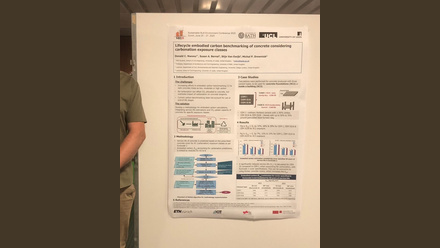Get talking – out of place?
Animesh Anand GradIMMM, Graduate Engineering Lecturer at Chesterfield College, UK, discusses the disproportionate impact of Imposter Syndrome on minorities in the workplace and shares his own experiences.

Throughout most of my life, and now moving into my career, I’ve personally felt like I was missing something. I was brought into the UK at a very young age and witnessed my family adapt to life in Great Britain. As I worked with my peers and fellow students, there was a sense of ease to the people around us that I didn’t seem to share.
I put a lot of this sensation down to overthinking. However, I felt that the amount of hard work I was exerting to reach the same level as some of my peers seemed disproportional to the rewards that were reaped. Any time I felt that my efforts wavered, I was strongly reminded, both culturally and environmentally, that I was somehow being lazy in comparison to my native counterparts. However, the consistency of such behaviour throughout my pre-university education forced me to take a look at the imposing situation. I felt like an imposter.
Syndrome vs cultural phenomena
The feeling of being less capable than your peers, the ingrained mentality that your success is not earnt and the general feeling of being a fraud is what is known as Imposter Syndrome. Yet, the use of the word syndrome indicates a psychological condition. While Imposter Syndrome can be psychological, its impact on minority communities goes beyond the syndrome concept, and the lack of separation between that and a cultural phenomena, brought upon by generations of social inequality, leads to detrimental correlation on how to address and view the problem e.g., viewing Imposter Syndrome as “vulnerable narcissism” (Kaufman, 2018, Are Narcissists More Likely to Experience Impostor Syndrome published in Scientific American).
The phenomena of feeling like an imposter in working situations is amplified by the lack of representation of minorities in the workplace, particularly in management roles. According to the aforementioned study, people from minority ethnic backgrounds in the US make up roughly 39% of the population, yet out of the Fortune 500 US companies, 90% of CEO positions are filled by white men. Across these companies, only 3.3% (as of 2018) of management roles are filled by people from ethnically diverse backgrounds.
The 2020 UK Trade Union Congress report, BME women and work, suggests that a lack of diversity throughout companies actively discourages people from minority backgrounds to apply and integrate into the environment. Women from minority backgrounds are reported to be one of the most adversely affected groups – 34% are subject to racism in the workplace, and no action is taken in 24% of cases of harassment submitted.
Those entering workplaces where diversity is lacking are more likely to feel they are undeserving of their current position. They may feel that they were offered their role as an attempt to diversify a company, rather than their well-earned achievements and successes. A major issue that can perpetuate this feeling is the lack of support and understanding from colleagues.
After finishing my degree, I walked into numerous interviews where upon being given a tour of the site, the distinctive lack of representation stood out and made me uneasy. Having interviewed and been employed in various locations and companies, I have immediately felt more at ease if I can see people that represent me, via the interview panel itself, as an integrated part of the workforce and company hierarchy, or in an environment where mixing of cultures is evident.
Life impact
The resulting effects of Imposter Syndrome can be disastrous on mental, emotional and physical health, resulting in burnout. There is a constant need to work at peak efficiency and that effort is mentally taxing, especially when it’s what is expected from you at all times as your standard. When an inevitable burnout occurs, it’s flagged as a greater drop in efficiency, therefore adding pressure to the individual and creating a repetitive cycle of burnout.
The open encouragement of diversity in my current workplace and a workforce that is culturally varied reduces my need to prove my own existence as a member of the company. Seeing people from differing backgrounds in varying roles within the organisation supports my own development.
Nevertheless, despite understanding my own self-worth, the ingrained concept of feeling like an imposter is something that will plague my thought process for many years to come.







